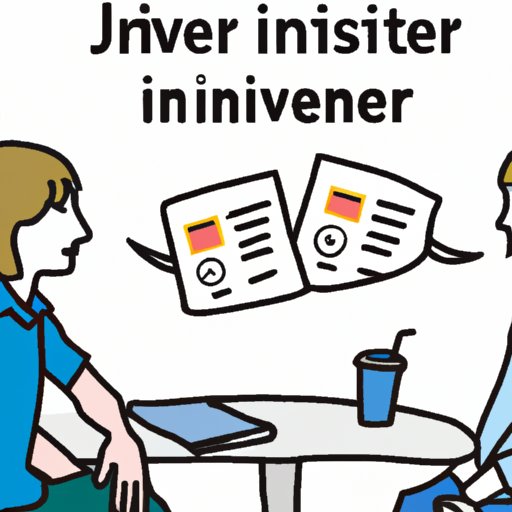
Introduction
It’s not uncommon for job seekers to be invited for an interview and decide to decline it. Sometimes it’s due to multiple job offers or a scheduling conflict, and sometimes the job doesn’t seem like the right fit. Whatever the reason, it’s important to decline the interview gracefully while keeping your professional network in mind. In this article, we’ll explore different approaches to declining an interview courteously and professionally, from the polite approach to the referral approach.
The Polite Approach
When it comes to declining an interview, it’s important to be polite and respectful in your response, even if the job isn’t suitable for you. A courteous response shows professionalism, and it can keep doors open for future opportunities.
Here are some tips for politely declining an interview:
- Express gratitude for the opportunity to interview.
- Explain kindly the reason why you won’t be able to attend, such as accepting another position or schedule conflicts.
- Offer to stay in touch or to consider other opportunities in the future.
The Professional Approach
Being professional in your response can help maintain a good reputation in the industry. Hiring managers and recruiters may encounter you again in the future, and your reputation can help you secure the job you want.
Here are some tips for declining an interview professionally:
- Respond to the invitation promptly and with a straightforward answer.
- Show respect and appreciation for the interviewer’s time.
- Offer a clear and concise explanation for the decision, avoiding overly negative language or excuses.
The Time-Saving Approach
Time is a precious commodity, and job seekers may choose to decline an interview if they don’t have enough of it to commit to the preparation, travel, and actual interview. Being honest about your time constraints is a reasonable approach.
Here are some tips for declining an interview using the time-saving approach:
- Explain that you don’t have the time to prepare adequately for the interview, either because of other commitments or the position’s complexity.
- Express regret for declining the interview and appreciation for the offered opportunity.
- Suggest alternatives, like an email exchange or phone call, to better assess priorities with the hiring manager.
The Honesty Approach
It might not be easy, but sometimes honesty is the best policy when it comes to declining an interview. If the position doesn’t interest you, explain why in a polite but truthful way, avoiding unnecessary criticisms of the company or the offered position.
Here are some tips for declining an interview honestly:
- Be honest about the reasons why the position doesn’t interest you, such as your career goals or mismatched company culture.
- Offer feedback, if relevant, on how the position could be improved to attract more candidates, but keep your feedback constructive and actionable.
- Express appreciation for the time and consideration.
The Prior Commitments Approach
Sometimes prior commitments prevent candidates from attending an interview. In such cases, clear and respectful communication is crucial.
Here are some tips for declining an interview due to prior commitments:
- Explain that you have a prior obligation that cannot be subverted, such as a work meeting, personal commitment, or family event.
- Offer to reschedule the interview, if possible, suggesting a new date and time that works with your schedule.
- Express regret and gratitude for the offered opportunity while appreciating the interviewer’s time.
The Referral Approach
Sometimes, you may decline an interview but refer an equally qualified candidate in your network. Offering a referral can demonstrate your industry connections and goodwill to the hiring managers, making a positive impression even if you’re not attending the interview.
Here are some tips for declining an interview while offering a referral:
- Provide a name and contact information of another person who may be a better fit for the position.
- Explain why the candidate is qualified and why their background would be suitable for the position.
- Express appreciation for the opportunity, even though you’re declining, and offer to provide feedback on the referred candidate if needed.
Conclusion
Declining an interview can be tricky, but it doesn’t have to be awkward or uncomfortable. Whether you use the polite, professional, time-saving, honesty, prior commitments, or referral approach, keep it courteous, straightforward, and positive. Maintaining a good reputation within the industry and keeping doors open for future opportunities are just some of the benefits of declining an interview gracefully.





